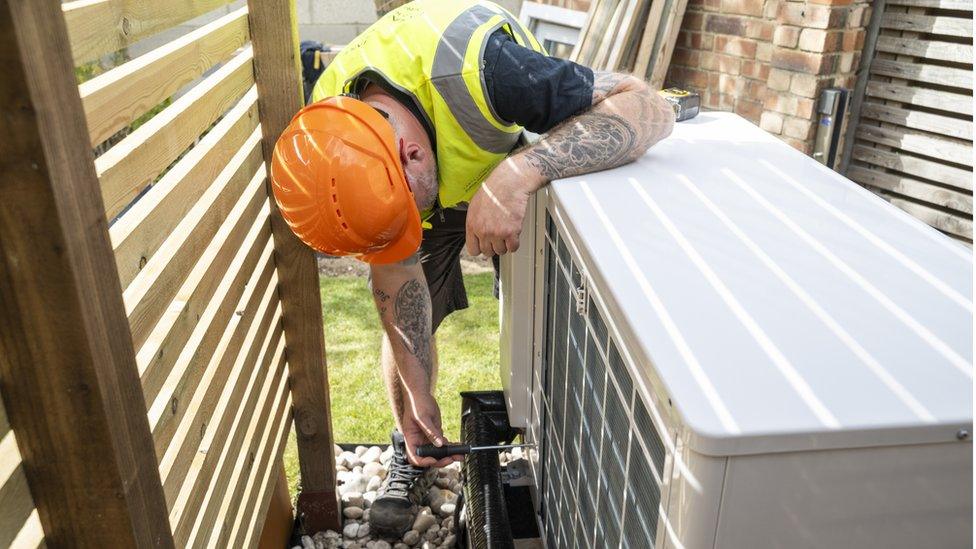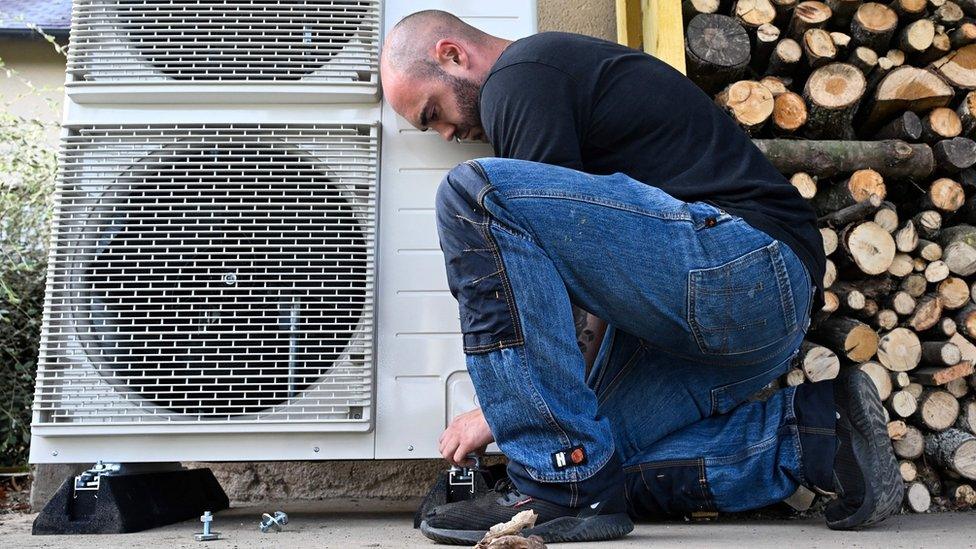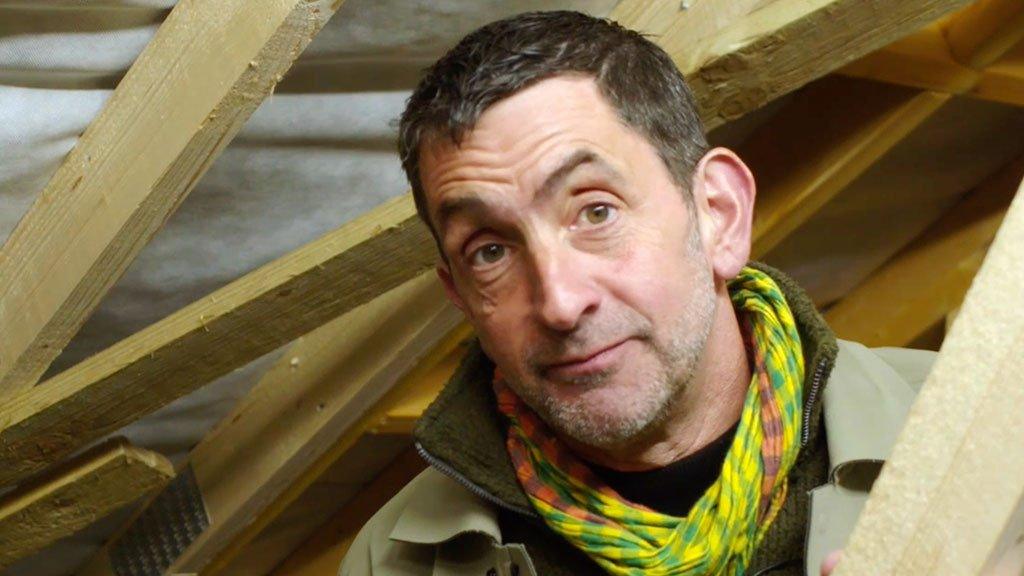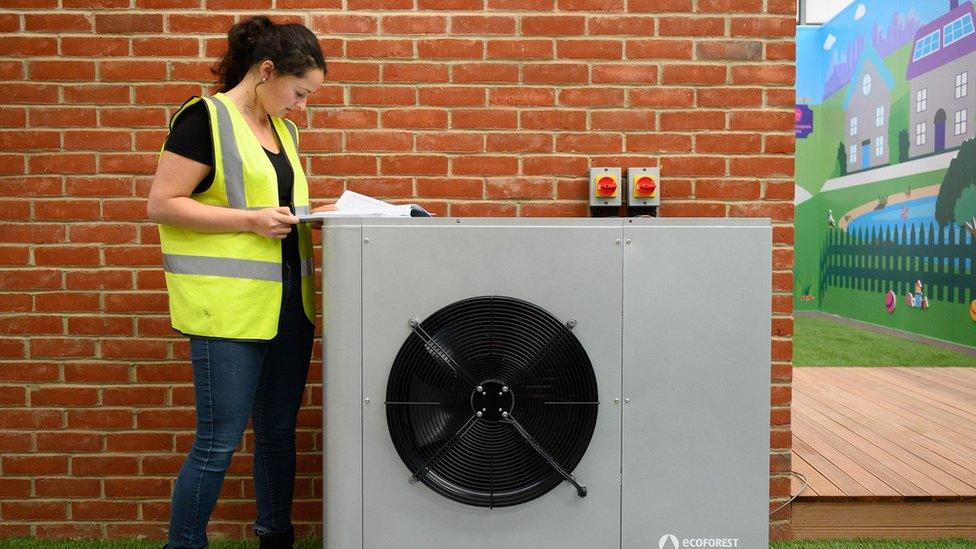Heat pumps: 'Boiler tax' delayed from 1 April to next year
- Published

The government is delaying the implementation of fines for boiler manufacturers who do not hit heat pump sales targets.
The so-called "boiler tax" is designed to encourage households away from traditional gas boilers and towards greener heating methods.
Critics say delaying the tax from 1 April to next year will not help the UK meet its emissions targets.
But the government said it will also make heat pump grants easier to get.
It said it has relaxed rules on insulation to make it easier for householders to qualify for a £7,500 heat pump grant, saying that cavity wall and loft insulation will no longer be mandatory.
The clean heat market mechanism meant boiler manufacturers would have had to match, or substitute, 4% of their boiler sales with heat pumps, or face a £3,000 fine for each missed installation.
But, in anticipation of fines, boiler manufacturers have been pushing up the price of gas boilers by up to £120.
However, critics have said the price rises are unnecessary and could net them millions.
The insulation rule changes, which will come into force in the coming months, mean certain households will not have to pay a lump sum for installing insulation to qualify for the grant, the Department for Energy Security and Net Zero said.
That could save upfront costs of £2,500, the department added.
Instead, any costs of installing insulation can be spread out.
Homes still need to have appropriate insulation to save on energy bills. Some households can get free or cheaper insulation through the Great British Insulation Scheme, the government advised.
On Thursday the Energy Secretary Claire Coutinho called for the Competition and Markets Authority to investigate the boiler market.
Four big manufacturers - Worcester Bosch, Vaillant, Baxi and Ideal - control 90% of the market.
The government said pushing the clean heat market mechanism back a year to April 2025 was to give the industry more time to get ready.
But environmental campaign organisation Greenpeace said the government had caved in to "price gouging" and the "demands of climate sceptics".
"This is yet another deeply damaging step backwards from the government on climate that puts our net zero targets in jeopardy and will leave the country paying more for its energy," said Greenpeace UK's policy director, Doug Parr.
He added: "The whole point of the clean heat mechanism was that manufacturers and supply chains would be pushed into making change happen."
Mr Parr said that the market is already there for heat pumps, and that uptake rose by almost 50% when financial support was increased.
But Mike Foster, chief executive of the industry group Energy and Utilities Alliance, said the public do not like the "boiler tax" and that delaying the implementation of the mechanism was "clearly political, not about heating policy".
"The government have set a trap for a future administration, which according to the polls is likely to be Labour, knowing the boiler tax from 2025 is likely to be around £200," he said.
"It could be up to Labour Ministers to decide whether to go ahead with the boiler tax, but they have been warned, the public don't like it; it hits the least well off the hardest and the whole policy needs to be revisited before it harms British companies and British workers."
The Conservative Party has been contacted for comment.
Related topics
- Published2 January 2024

- Published1 August 2023

- Published17 July 2023
